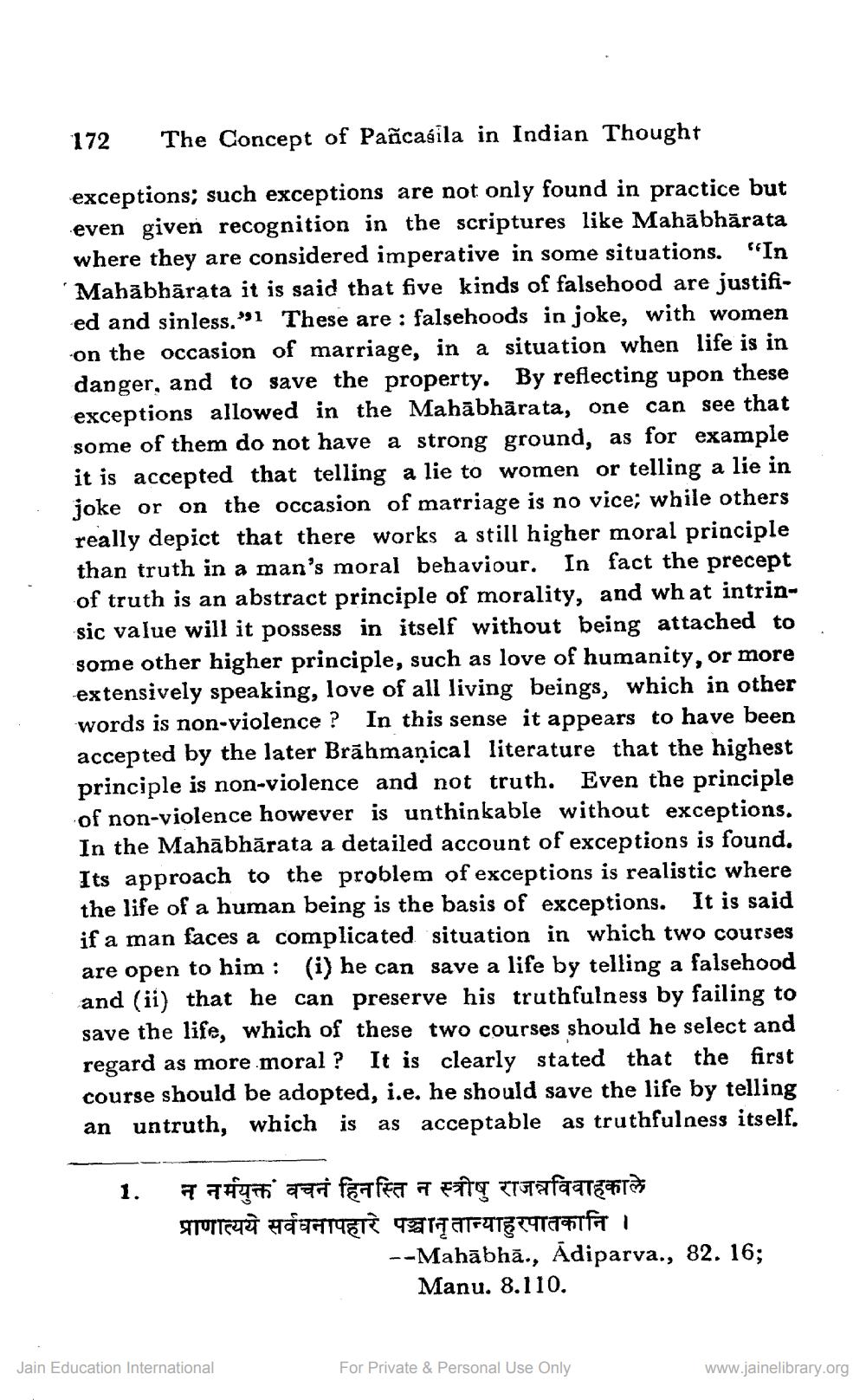________________
172
The Concept of Pañcasila in Indian Thought
exceptions, such exceptions are not only found in practice but even given recognition in the scriptures like Mahābhārata where they are considered imperative in some situations. "In Mahābhārata it is said that five kinds of falsehood are justified and sinless."1 These are : falsehoods in joke, with women on the occasion of marriage, in a situation when life is in danger, and to save the property. By reflecting upon these exceptions allowed in the Mahābhārata, one can see that some of them do not have a strong ground, as for example it is accepted that telling a lie to women or telling a lie in joke or on the occasion of marriage is no vice; while others really depict that there works a still higher moral principle than truth in a man's moral behaviour. In fact the precept of truth is an abstract principle of morality, and what intrinsic value will it possess in itself without being attached to some other higher principle, such as love of humanity, or more extensively speaking, love of all living beings, which in other words is non-violence ? In this sense it appears to have been accepted by the later Brāhmaṇical literature that the highest principle is non-violence and not truth. Even the principle of non-violence however is unthinkable without exceptions. In the Mahābhārata a detailed account of exceptions is found. Its approach to the problem of exceptions is realistic where the life of a human being is the basis of exceptions. It is said if a man faces a complicated situation in which two courses are open to him : (i) he can save a life by telling a falsehood and (ii) that he can preserve his truthfulness by failing to save the life, which of these two courses should he select and regard as more moral ? It is clearly stated that the first course should be adopted, i.e. he should save the life by telling an untruth, which is as acceptable as truthfulness itself.
न नर्मयुक्त वचनं हिनस्ति न स्त्रीषु राजन्नविवाहकाले प्राणात्यये सर्वधनापहारे पञ्चानृतान्याहुरपातकानि ।
--Mahābhā., Adiparva., 82. 16; Manu. 8.110.
Jain Education International
For Private & Personal Use Only
www.jainelibrary.org




